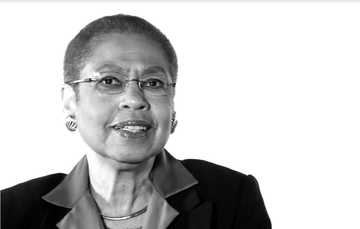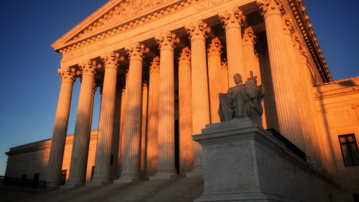Commemorating Black History & Women’s History Month
While February is an opportunity to celebrate the tremendous contributions of African Americans throughout history, we also recognize that the struggle for equality for people of color in the United States continues.
Just this week, my office announced two major legal actions to stop discrimination against residents living in Wards 7 and 8—whose population is predominantly Black. In one action, OAG filed a lawsuit alleging that a moving logistics company called Lend a Box engaged in racially discriminatory business practices by denying services to two Ward 7 and 8 zip codes. In another action, OAG announced a settlement with a small home improvement company that refused to provide services to residents east of the Anacostia River.
So, while February comes to a close, let us remember that celebrating Black stories and fighting for the rights of Black and Brown people does not stop here.
Black lives matter, Black history matters, and Black voices matter—not only this month, but all year long.
In March, we will celebrate Women’s History Month, and we get to continue celebrating Black history and Black lives by also honoring the Black women who paved the way for us today.
We’ll celebrate the women who, tired of being treated as second-class citizens in a country that they helped build, aided in changing the course of American history. Women were pioneers of civil rights, civil liberties, and social justice movements.
One such woman is Eleanor Holmes Norton—a civil rights and feminist leader, tenured professor of law, board member at three Fortune 500 companies, and most importantly—Congresswoman to the soon-to-be 51st state. I am honored and thrilled to have Congresswoman Norton as a special guest speaker for our next Take 30 discussion on Friday, March 5 at 12:00 p.m. ET.
I hope you will join us. RSVP at oag.dc.gov/take30rsvp.

Karl A. Racine
Attorney General
Penalizing McKinsey $573 Mil. for Role in Opioid Crisis
AG Racine, along with 53 Attorneys General, reached a $573 million settlement with McKinsey & Company, one of the world’s largest consulting firms, for its role in worsening the opioid epidemic. D.C. will receive $1.08 million over five years to pay for local efforts to address the harms caused by opioids, and the company will have to adopt new standards and ethics. Read more about the settlement here.
WIN: Urban Athletic Club Must Pay $10K Penalty for COVID-19 Violations
Urban Athletic Club, a District gym chain, will pay a penalty of $10,000 to resolve allegations it misled consumers and failed to comply with emergency COVID-19 health and safety requirements. Read more about the settlement here.
To report unfair business practices, contact OAG’s Office of Consumer Protection by visiting oag.dc.gov/consumer.
Supporting Fair Resentencing for Low-Level Drug Offenses
It is no secret that Black and Brown people often receive harsher prison sentences than their white counterparts for similar offenses. To help alleviate this, AG Racine, along with 19 other AGs, urged the Supreme Court to allow people with low-level crack cocaine offences to seek resentencing under the First Step Act. Passed in 2018, this landmark federal legislation provides relief to people serving harsh prison sentences because of unfair and racially discriminatory federal sentencing rules. Learn more about the First Step Act here.
Ensuring Equitable Access to COVID-19 Vaccines
COVID-19 has and continues to severely impact the District’s Black and Latinx residents. Sadly, nearly 90% of the District’s COVID-19 deaths have been people of color. Despite this devastating realty, during the first rounds of vaccine appointments, only 1% of appointments went to residents living in Ward 8; an area that is 92% Black and has experienced the highest number of COVID-19 related deaths. In response, OAG is pushing for equitable access to vaccine appointments and distribution. Kate Vlach, an attorney at OAG, recently testified before the D.C. Council on ways to ensure equitable access to the COVID-19 vaccine, read it here.
While there have been some technical difficulties this week, more and more people are becoming eligible for COVID-19 vaccines and additional appointments are opening up tomorrow (2/27). Visit vaccinate.dc.gov or call 1-855-363-0333 to find out more.
Engaging in Community Conversations
Episode #16 | New Jersey: A Pioneer in Criminal Justice Reform
|
|
AG Grewal joined us to discuss New Jersey’s new use of force policy—developed with extensive input from the community. Watch it here and learn more at njoag.gov/policing. |
Episode #17 | Social Justice Reform, Beyond the Protest
|
Episode 17 featured local advocates working to bring about lasting change in D.C. They discussed the Black Lives Matter movement and social justice reform. View it here. |
Holding AT&T Accountable for Defrauding the District Millions
In 2012, AT&T and the District entered into a long-term contract that was intended to provide the city with cost-effective services. The contract required AT&T to provide the cheapest cell phone and data services available. However, between 2012 and 2018, AT&T broke the terms of that contract, violating D.C. law by improperly charging the city millions for features, add-ons, and other services that the District neither needed nor used. Earlier this week, AG Racine filed a lawsuit against AT&T knowingly failing to provide these services. Read about the lawsuit here.
Welcoming the 2021 Class of Charles F.C. Ruff Fellows
AG Racine welcomed 16 recent graduates from area law schools to join OAG as part of the 2021 Charles F.C. Ruff Fellowship. OAG established this fellowship in 2012 to promote public interest in legal work and provide recent law school graduates the opportunity to practice law as Assistant Attorneys General for the District of Columbia. To meet the 2021 Fellows and see their assignments, click here.
To learn more about the Ruff Fellowship program, click here.
Testifying on the Supreme Court's “Shadow Docket”
The Solicitor General for the District of Columbia, Loren L. AliKhan, delivered compelling testimony on the Supreme Court’s “shadow docket” to members of the United States House Subcommittee on Courts, Intellectual Property, and the Internet. In her statement, SG AliKhan details the significance of the Supreme Court decisions that are made without oral argument or full briefing and the impact of those rulings on election laws, the Covid-19 pandemic, executive actions (such as the former President’s “travel ban”), and legal proceedings involving the death penalty. Read the full testimony here.










